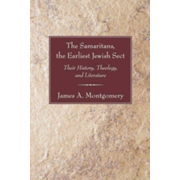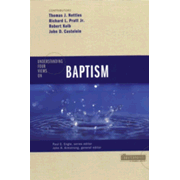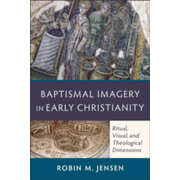WE NOW consider the gospel reading for the Third Sunday of
Lent. Coming from the Gospel According to Saint John, this text told of the
encounter between Jesus and a woman in Samaria.
We find at the beginning that the woman
was presented in scripture as a person shunned. She was a woman who lived on the fringes of acceptable society. She was treated badly,
even by those who were themselves treated by Judeans as lowly outsiders.
The story thus revealed to the Church
the radical grace and acceptance that God universally offered to the lowest of the low, and so this grace also comes to us…
So he (Jesus ) came
to a city of Samaria,
called Sychar, near the field that Jacob gave to his son Joseph. Jacob's well
was there, and so Jesus, wearied as he was with his journey, sat down beside
the well. It was about the sixth hour.
There came a woman of Samaria to draw water. Jesus said to her,
"Give me a drink." For his disciples had gone away into the city to
buy food.
The Samaritan woman said to him, "How is
it that you, a Jew, ask a drink of me, a woman of Samaria?" For Jews have no dealings with
Samaritans.
Jesus answered her, "If you knew the gift
of God, and who it is that is saying to you, 'Give me a drink,' you would have
asked him, and he would have given you living water."
The woman said to him, "Sir, you have
nothing to draw with, and the well is deep; where do you get that living water?
Are you greater than our father Jacob, who gave us the well, and drank from it
himself, and his sons, and his cattle?"
Jesus said to her, "Every one who drinks
of this water will thirst again, but whoever drinks of the water that I shall
give him will never thirst; the water that I shall give him will become in him
a spring of water welling up to eternal life."
The woman said to him, "Sir, give me this
water, that I may not thirst, nor come here to draw."
Jesus said to her, "Go, call your
husband, and come here."
The woman answered him, "I have no
husband." Jesus said to her, "You are right in saying, 'I have no
husband'; for you have had five husbands, and he whom you now have is not your
husband; this you said truly."
The woman said to him, "Sir, I perceive
that you are a prophet. Our fathers worshiped on this mountain; and you say
that in Jerusalem
is the place where men ought to worship."
Jesus said to her, "Woman, believe me,
the hour is coming when neither on this mountain nor in Jerusalem will you worship the Father. You
worship what you do not know; we worship what we know, for salvation is from
the Jews. But the hour is coming, and now is, when the true worshipers will
worship the Father in spirit and truth, for such the Father seeks to worship
him. God is spirit, and those who worship him must worship in spirit and
truth."
The woman said to him, "I know that
Messiah is coming (he who is called Christ); when he comes, he will show us all
things."
Jesus said to her, "I who speak to you am
he."
Just then his disciples came. They marveled
that he was talking with a woman, but none said, "What do you wish?"
or, "Why are you talking with her?"
So the woman left her water jar, and went away
into the city, and said to the people, "Come, see a man who told me all
that I ever did. Can this be the Christ?" They went out of the city and
were coming to him.
Meanwhile the disciples besought him, saying,
"Rabbi, eat." But he said to them, "I have food to eat of which
you do not know."
So the disciples said to one another,
"Has any one brought him food?"
Jesus said to them, "My food is to do the
will of him who sent me, and to accomplish his work. Do you not say, 'There are
yet four months, then comes the harvest'? I tell you, lift up your eyes, and
see how the fields are already white for harvest. He who reaps receives wages,
and gathers fruit for eternal life, so that sower and reaper may rejoice
together. For here the saying holds true, 'One sows and another reaps.' I sent you to reap that for which you did not
labor; others have labored, and you have entered into their labor."
Many Samaritans from that city believed in him
because of the woman's testimony, "He told me all that I ever did."
So when the Samaritans came to him, they asked him to stay with them; and he
stayed there two days. And many more believed because of his word. They said to the woman, "It is no longer
because of your words that we believe, for we have heard for ourselves, and we
know that this is indeed the Savior of the world." (John 4:5-42)
 |
Twelve Extraordinary Women: How God Shaped Women of the Bible and What He Wants to Do with You By John MacArthur |
On Being Thirsty…
Traveling from Cana where he had turned water into wine
during a wedding celebration, our Lord went onward in ministry. He walked a
short, but not highly traveled route through Samaria along the way. He went
there in spite of the fact that no devout Jew would have dealings with any
Samaritan. Most devout Jews would take the longer route around the region. The
historical disdain between Samaritans and Jews went way back in time, as likely
recorded by the prophet Nehemiah, in Chapter 4.
The Samaritans had
since those days of the ancestors, been driven from their temple on Mount
Gerazim. They had been forced to the location of Shechem by Alexander the
Great. Later the Maccabean ruler Hyrcanus destroyed that temple and tried to
suppress the cultic practices there. Scripturally, however, we have little
other knowledge of them than this history and that which is found in the Lukan
telling of the “Good Samaritan”.
Thus the place called
Sychar was indeed classified as lost and desolate to Jews. And yet Jesus
deliberately went there… as if to retrieve the lost. In surety however, let us
be reminded that both Samaritans and Jews had belief in the coming of the delivering
Messiah. As evidenced here, the woman believed that a Deliver would come.
 |
Samaritans, the Earliest Jewish Sect: Their History, Theology and Literature By James Alan Montgomery |
Therefore, we read
that the woman went to the well of Jacob as recorded by this story in John.
There a prophetic event occurred between that fallen woman and Jesus. The event
revealed to John’s churches, and to us… the unfolding grace of God which was to
be poured out also upon lowly Samaritans through his beloved Son.
Of first importance,
let us note that all of the disciples were elsewhere doing errands. They were sent
grocery shopping. We then must consider that this story was likely found present
in John’s telling simply because of local witness and legend. It surely comes from
an independent Johannine source… and not from direct observation of the
disciples.
Thus told by word of
mouth by the followers of Jesus who kept the occasion in remembrance, possibly the
very citizens of the area in Samaria, the story told of Jesus arriving in
thirst to the historically-important well. Jacob’s well had indeed supplied
precious water for centuries
The place was recorded as thus…
“Then Israel said to
Joseph, "Behold, I am about to die, but God will be with you, and will
bring you again to the land of your fathers. Moreover I have given to you
rather than to your brothers, one mountain slope which I took from the hand of
the Amorites with my sword and with my bow." (Genesis 48:21-22)
The well, therefore, had
sustained community life for a separated people and flocks of that area for
hundreds of years. The problem was that the woman our Lord found there was one who
her own society shunned. As a Samaritan, she was shunned also by the Jews as
they even rumored that the women there were perpetually in menses. In totality,
she was a scorned woman of a scorned people. As well, it seems she was not
thought of highly because of her own lifestyle, whether placed amid social
squalor by circumstance, life choices, or acts of survival. Therein was the door-clanging
heat of condemnation for her as Jesus approached the well. She was scorned so thoroughly
that she had to physically go to the fountain during the high heat of the day.
She went to the well while being scorched by the world… trying to refill her empty
vessels. At the time, therefore, Jesus seemingly baited her..., in using
authority that seems to have been a haughty tone.., “Give me a drink.”
We note the absence
of the word, “Please”. Then, somewhat like a disgruntled congregant who was called
to supply water or wine on short notice for an unplanned churchly baptismal thanksgiving
dinner, she reacted sarcastically. Some might say the answer bordered on the demonic.
She challenged Jesus with a “Why should
I?” attitude. Somehow we fathers today might sense these words as echoed by
an obstinate teen-aged daughter. In other words, it seems she retorted… “Why? I am not a Jew! I am not your
daughter… one of yours!
This retort in our
reading is where Jesus spiritually breaks the earthen vessels in which she carried
sour and brackish water. He almost scolded her. He told her of “living water”.
He related that he knew her station of living in a town that had rejected her, and
he knew that she led a life with questionable path.
This was revealed as
true… but even so he would give her some wondrous, lively water if she only asked.
Now, for those of us who are uninformed… water bubbling with the Spirit was
surely scriptural. We read from many places describing this enlivening water…
such as…
“Behold, everyone who
thirsts, come to the waters; and he who has no money, come, buy and eat! Come,
buy wine and milk without money and without price.” (Isaiah 55:1).
The water which Jesus,
as the Son of Man and Son of God provides to us is water empowered by the
Spirit… the eternal Spirit of God. The spiritual water offered by Jesus comes
from the deep well of God’s love which never goes dry. That water is never withheld
from those who seek. That water and Spirit cannot be constrained by any
container. When desired by a believer, no person, town, nation nor church can
stop its flow.
We note here that this
revelation was made by Jesus, who was an itinerant Jewish rabbi… and he was speaking
to a rejected woman. We remind that she lived in a rejected town, in a
backwater province of an earthly empire. In modern times surely we who should know
more of our position at the universal watering hole may marvel the wonder that
this love poured out. We spin on a minor planet
of a second rate star… in a universe that science now claims as a miniscule
speck in the infinitely expanding creation of God. Such is the magnificently
focused love of God that was poured out to this singular and lowly woman… and so also
to us.
Welling Up!
 You see, to feel as you are without God’s love poured out is
something the woman had experienced. She had endured the loss of several husbands.
The woman was likely considered as spent marital property. Tossed aside, she sought
a man’s companionship but did not marry. She was ostracized and scorned by her
own people. Thus I believe for John, she indeed represented the early church.
You see, to feel as you are without God’s love poured out is
something the woman had experienced. She had endured the loss of several husbands.
The woman was likely considered as spent marital property. Tossed aside, she sought
a man’s companionship but did not marry. She was ostracized and scorned by her
own people. Thus I believe for John, she indeed represented the early church.
To further this point,
note that the Samaritan woman received the Spirit over against the high powers
of Jerusalem and Rome. The woman and her people had existed as outcasts for
centuries, yet had survived by the grace of God. But note, the woman was
gracefully offered not just her sustenance water for the day, but had she asked…
she would have received living water forever!
Certainly, like those
who had come to John the Baptist for ritual cleansing and would need to return
again, she instead received the good news of impending eternal cleansing.
Therefore, I believe that this telling related to the readers found in the time of
the writer, that they too could receive the gift of faith. Subsequently, through
baptism, faith had been given by Jesus through the Spirit of Pentecost. That faith would bubble up and spill forth
in them… overflowing even to the ends of the earth.
“On the last day of
the feast, the great day, Jesus stood up and proclaimed, "If any one
thirst, let him come to me and drink. He who believes in me, as the scripture
has said, 'Out of his heart shall flow rivers of living water.'" (John
7:37-39)
Prophetically bound
together then, the woman represented the early Christian church… congregations that were just beginning
to know of the grace poured out. That power revealed was yet to grow and would be
fulfilled upon the last day.
 |
Understanding Four Views on Baptism By Edited by John H. Armstrong |
Her Cup Was Full…
Jesus stayed in that place for a time, ministering with the
woman and her people. He stayed and delivered the Word of God. I have little
doubt that he built great faith among those who had been rejected, for this very
story is evidence. He then continued his mission toward Jerusalem in answer to
prophecy. Jesus went from that humble and despised place to Jerusalem on high. There he was to be lifted
up, just as had been planned from the beginning.
In Jesus’ actions at
the well, therefore, we see that an exchange surely took place. In Jerusalem he was rejected
and set apart. He was persecuted. Though innocent, he accepted for himself that
woman’s place in the community of man. There in Jerusalem, the rabbi was beheld as a forever
unacceptable outcast.
Consequently, the man
Jesus, who prophetically thirsted at the well of Jacob, thirsted finally upon
the cross. The Son of God received the woman’s human plight and gave his
eternal life both for her and for us… in a blessed exchange that pleased his
Father.
Take note! Jesus died
for her there upon the cross, for her people, and even we today who accept his
gift. We who read the story need only try to grasp the fullness of this meaning.
We who need also to receive
water from the spiritual cup and be baptized, need to individually or
corporately drink deeply of the living water offered. When we accept the wondrous
gift, we are redeemed. Then we may as the body of Christ, offer the living
water to others.
I say to you that we should
not depend on the dry wells of religiosity, earthly governments, or the popular progressive
opinions within this world. We know these earthen, dry pits shall fail.
Instead, let us more certainly grasp the baptismal cup in the knowing that we have
been eternally set aside for mission in the world, by immersion in the Spirit at
the eternal well of love that does not fail.
As the Church, let us
realize that we receive forgiveness for our separation from God and one
another. We note from scripture that in spite of first misgivings (see Matthew
10:5) through which we thought we are determined as separate, we now emerge
from the waters joined as baptized and empowered. We are joined together though
sinners to become the Sent Ones. This empowerment comes to us amid the furious heat
of the day.
Remember! The grace of
God can cool our sinfully parched and argumentative throats… so that we may
speak blessed words of salvation to others. Like the woman at the well, we may
run to tell the village. In this way, the watery blessing becomes a gift that
wells up in the world even unto eternal life. So it has been revealed to us.
That is precisely how the blessed enlivened water coming from God flows! May it
bubble forth by the power of the Spirit on into our future… even unto the end
of the age.
For messages based upon scripture, click for videos below....
For messages based upon scripture, click for videos below....
May the Lord bless and keep you!





AMEN, Pastor!
ReplyDelete